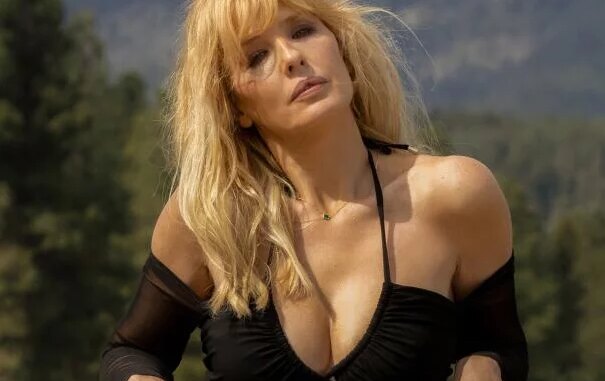
Beth Dutton: Feminist Icon or Insult? A Razor-Edged Debate
Beth Dutton, the fiery, unapologetically ruthless daughter of John Dutton in the hit series "Yellowstone," ignites a fervent debate: is she a feminist icon, a powerful woman carving her own path in a patriarchal world, or an insult to the feminist movement, a caricature whose "strength" relies on manipulation and toxic masculinity? The answer, as complex and multifaceted as Beth herself, lies in understanding the nuances of her character, the context of her actions, and the evolving definition of feminism in the 21st century.
On the surface, Beth presents a compelling case for feminist icon status. In a world dominated by men, both in the rough-and-tumble ranching community and the cutthroat corporate arena, she holds her own and often dominates. She's a fiercely intelligent businesswoman, capable of outmaneuvering her rivals with a ferocity that leaves them reeling. Her unwavering loyalty to her family, particularly her father and brother, echoes the traditionally lauded feminine trait of nurturing, but Beth twists it into a protective force that can be terrifying to behold. She doesn't apologize for her ambitions or her methods, embracing a ruthless efficiency that transcends gender. This refusal to conform to traditional feminine expectations, the bold claiming of power in a traditionally male domain, is undeniably appealing to those who champion the dismantling of patriarchal structures.
Furthermore, Beth's open sexuality and reclamation of her own body, despite past traumas, resonate with many modern feminists. She doesn't shy away from expressing her desire and owns her sexuality with an audacity that challenges societal expectations. Her vulnerability, though often carefully guarded, surfaces in her relationship with Rip, revealing a woman capable of deep love and loyalty, further humanizing her and adding layers of complexity beyond the hardened exterior. In a world that often seeks to control and shame women's sexuality, Beth's unapologetic expression is a defiant act of self-ownership.
However, digging beneath the surface reveals a darker, more problematic side to Beth's character that complicates her feminist appeal. Her methods are often morally questionable, relying on blackmail, intimidation, and blatant disregard for the law. She uses her sexuality as a weapon, manipulating men to achieve her goals. Her loyalty to her family borders on blind obedience, reinforcing the patriarchal structure she supposedly fights against. While she breaks down gender barriers in her career, she often does so by adopting traits typically associated with toxic masculinity: aggression, dominance, and a win-at-all-costs mentality.
Critics argue that Beth's "feminism" is ultimately performative, a charade that masks a deeper reliance on the patriarchal system she claims to oppose. Her power comes not from dismantling the system but from manipulating it to her advantage. Her constant belittling of other women, particularly those she perceives as threats, further undermines her claim to be a champion of female empowerment. This internalized misogyny, the act of perpetuating harmful stereotypes about women, is a significant obstacle to considering her a feminist icon.
Furthermore, Beth's character arc is rooted in trauma, specifically the forced sterilization she suffered as a teenager. While this experience undoubtedly shapes her, it also risks perpetuating the harmful trope of the "damaged woman" whose actions are justified by past abuse. Reducing her complexity to this single event simplifies her character and diminishes her agency, ironically undermining the very feminist ideals she supposedly embodies.
Ultimately, Beth Dutton is a character of contradictions, a walking paradox that embodies both the empowering and the problematic aspects of modern feminism. She challenges traditional gender roles and refuses to be silenced, but her methods are often unethical and her actions can be damaging to other women. To label her definitively as either a feminist icon or an insult is to oversimplify a character whose complexity is precisely what makes her so compelling.
Perhaps the most valuable aspect of Beth Dutton is not whether she fits neatly into a pre-defined box of feminist ideals, but rather the conversations she sparks. She forces us to confront uncomfortable questions about power, morality, and the complexities of female agency in a world still grappling with patriarchy. She compels us to examine the nuances of strength and vulnerability, and to acknowledge that even the most powerful women can be flawed and contradictory. In this sense, Beth Dutton, whether we embrace or reject her as a feminist icon, serves as a powerful reflection of the ongoing, evolving, and often messy journey toward gender equality.
